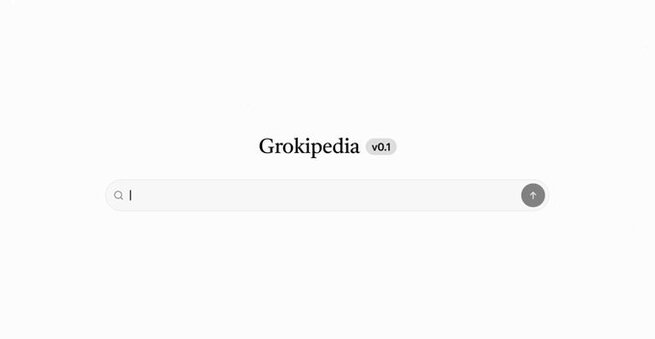Alerts

Elon Musk’s Grokipedia launches with AI-cloned pages from Wikipedia — and it’s already sparking debates about originality and ethics in AI-generated knowledge. The new encyclopedia, created by Musk’s xAI, mimics Wikipedia’s layout and content so closely that many of its pages include disclaimers stating they’re “adapted” from the original Wikipedia source.
At first glance, Grokipedia’s interface feels strikingly familiar. A clean homepage with a large search bar and minimal design instantly recalls Wikipedia’s style. Each article features headings, subheadings, and citations — though, unlike Wikipedia, users can’t freely edit entries. An edit button appears on select pages, but it only reveals existing revisions without identifying who made them.
What makes this move especially controversial is the claim that entries are “fact-checked” by Grok, Musk’s AI chatbot. Critics argue this could be misleading, as large language models are notorious for generating false or exaggerated “facts.”
Despite Musk’s bold claims that Grokipedia would be a “massive improvement” over Wikipedia, much of its content seems directly cloned. Several entries — from tech products like the MacBook Air and PlayStation 5 to obscure topics like the Lincoln Mark VIII — include the note: “The content is adapted from Wikipedia, licensed under Creative Commons Attribution-ShareAlike 4.0 License.”
Side-by-side comparisons reveal that many of these pages are nearly identical to Wikipedia’s originals, raising questions about the degree of AI involvement versus simple replication.
The Wikimedia Foundation, which operates Wikipedia, has responded to the controversy. “Even Grokipedia needs Wikipedia to exist,” said Lauren Dickinson, a Wikimedia spokesperson. While the Creative Commons license technically allows reuse, the spirit of collaboration — attribution and transparency — is what Wikimedia says defines its mission.
Musk has long criticized Wikipedia for what he views as ideological bias, claiming Grokipedia will offer “objective, AI-powered truth.” However, its dependence on Wikipedia content suggests that AI still struggles with generating accurate, verifiable information independently.
If Grokipedia grows, it could mark a new era of AI-managed knowledge bases — but one shadowed by legal, ethical, and creative concerns. Whether it evolves into a credible source or remains an AI mirror of Wikipedia will depend on how xAI handles attribution, accuracy, and editorial transparency in the coming months.
𝗦𝗲𝗺𝗮𝘀𝗼𝗰𝗶𝗮𝗹 𝗶𝘀 𝘄𝗵𝗲𝗿𝗲 𝗿𝗲𝗮𝗹 𝗽𝗲𝗼𝗽𝗹𝗲 𝗰𝗼𝗻𝗻𝗲𝗰𝘁, 𝗴𝗿𝗼𝘄, 𝗮𝗻𝗱 𝗯𝗲𝗹𝗼𝗻𝗴. We’re more than just a social platform — from jobs and blogs to events and daily chats, we bring people and ideas together in one simple, meaningful space.
